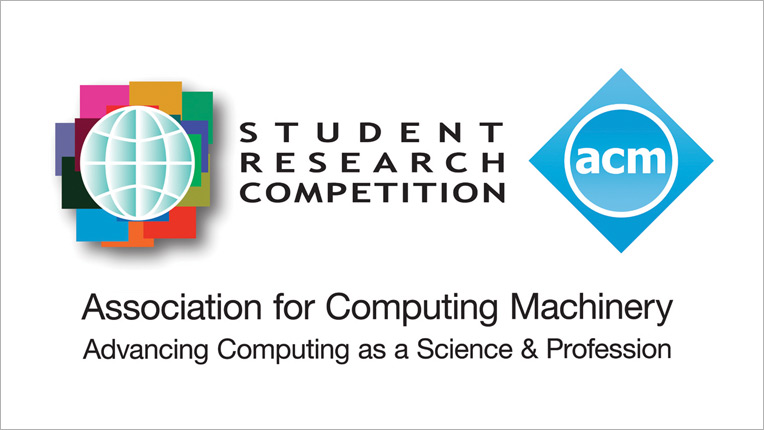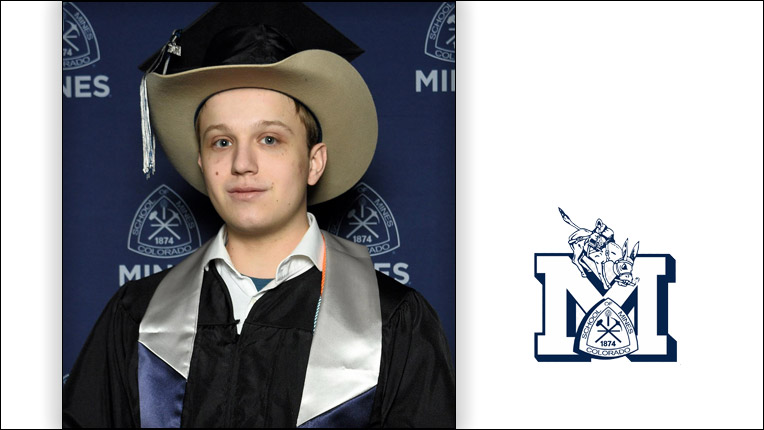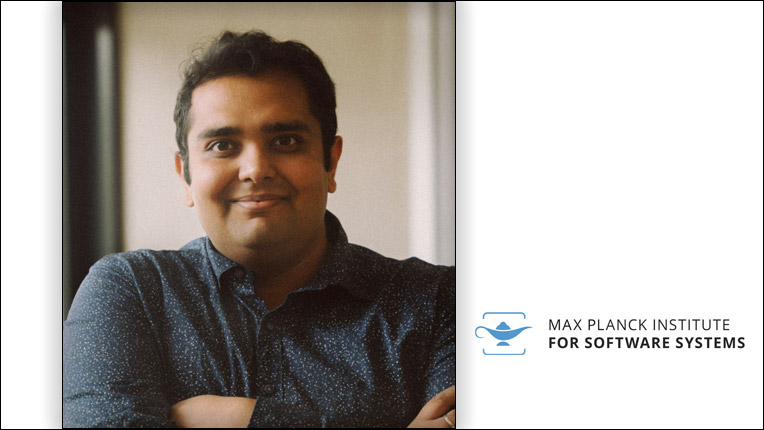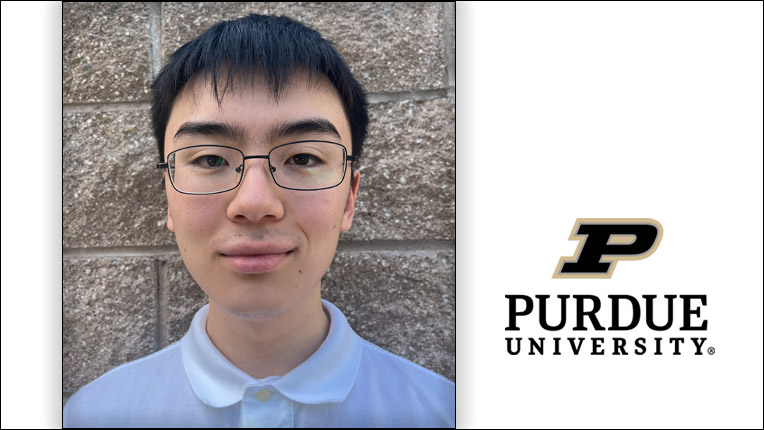The ACM Student Research Competition (SRC)
The ACM Student Research Competition (SRC) offers a unique forum for undergraduate and graduate students to present their original research before a panel of judges and attendees at well-known ACM-sponsored and co-sponsored conferences.
Recognizing the value of student participation at conferences, ACM started the Student Research Competition Program in 2003. The ACM SRC provides participants a chance to meet other students and to get direct feedback on their work from experts. This year's competitions took place at 21 participating ACM SIG conferences, sponsored by SIGAI, SIGACCESS, SIGARCH, SIGBED, SIGCOMM, SIGCSE, SIGDA,SIGDOC, SIGGRAPH, SIGHPC, SIGMETRICS, SIGMICRO, SIGMOBILE, SIGOPS, SIGPLAN, SIGSOFT and SIGSPATIAL as well as TAPIA which included more than 334 student participants. The SRC program is administered by Nanette Hernandez of the ACM, Douglas Baldwin of SUNY Geneseo and Adrienne Decker of University at Buffalo.
2025 ACM SRC Grand Finals Winners
The 2025 ACM Student Research Competition Grand Finals winners are:
GRADUATE CATEGORY
First Place- Jordan Pettyjohn: Colorado School of Mines
Second Place- Haowen Lai : University of Pennsylvania
Third Place- Vaastav Anand : Max Planck Institute for Software Systems
UNDERGRADUATE CATEGORY
First Place- Jason Han: Rice University
Second Place- Craig Liu: Purdue University
Third Place- Jizheng He: University of Illinois, Urbana-Champaign
The SRC Grand Finals are the culmination of a year-long competition that involved more than 325 computer science students presenting research projects at 21 major ACM conferences.
Students can gain many tangible and intangible rewards from participating in one of ACM’s Student Research Competitions. The ACM Student Research Competition is an internationally recognized venue enabling undergraduate and graduate students to earn:
- Awards: cash prizes, medals, and ACM student memberships
- Prestige: Grand Finalists receive a monetary award and a Grand Finalist certificate that can be framed and displayed
- Visibility: opportunities to meet with researchers in their field of interest and make important connections
- Experience: opportunities to sharpen communication, visual, organizational, and presentation skills in preparation for the SRC experience

2025 SRC Winner First Place, Graduate
Jordan Pettyjohn, Colorado School of Mines
"Mind Your Manners: Detoxifying Language Models via Attention Head Intervention" (SC 2024)
1ABSTRACT Transformer-based language models deliver impressive fluency but can also propagate and amplify toxic or biased behavior learned from their training data. We present DART (Degenerate AttentionResponse Tracking), a per-head toxicity auditing method that identifies which attention heads generate the most harmful tokens, and ToxIn (Toxicity Intervention), a lightweight activation-patching procedure which ablates those heads’ toxic contributions in a humaninterpretable manner. To scale interpretability and intervention to billion-parameter models, we propose LoRA Lens, a low-ran adaptation that approximates full-rank affine transformations with 99 % fewer parameters and yields up to a 1, 800× speedup during training.) [Read more]

2025 SRC Winner Second Place, Graduate
Haowen Lai, University of Pennsylvania
"Enabling Visual Recognition at Radio Frequency" (Mobicom 2024)
ABSTRACT This paper introduces PanoRadar, a novel RF imaging system that brings RF resolution close to that of LiDAR, while providing resilience against conditions challenging for optical signals. Our LiDAR-comparable 3D imaging results enable, for the first time, a variety of visual recognition tasks at radio frequency, including surface normal estimation, semantic segmentation, and object detection. PanoRadar utilizes a rotating single-chip mmWave radar, along with a combination of novel signal processing and machine learning algorithms, to create high-resolution 3D images of the surroundings. Our system accurately estimates robot motion, allowing for coherent imaging through a dense grid of synthetic antennas. It also exploits the high azimuth resolution to enhance elevation resolution using learning-based methods. Furthermore, PanoRadar tackles 3D learning via 2D convolutions and addresses challenges due to the unique characteristics of RF signals. Our results demonstrate PanoRadar’s robust performance across 12 buildings. Code, datasets, and demo videos are available on our website. [Read more]

2025 SRC Winner Third Place, Graduate
Vaastav Anand, Max Planck Institute for Software Systems
"Online Specialization of Systems with Iridescent" (SOSP 2024)
1 Introduction Specializing system implementations to workload characteristics and hardware can significantly improve performance and efficiency [1, 3, 5–10, 13, 14, 18, 20–22, 25]. To achieve these benefits for particular hardware and workload combination, system developers manually modify the system code and recompile to benefit from the compile-time optimizations enabled by specialization [15, 23]. System specialization comes at the cost of generality.A system heavily specialized to workload and hardware either performs poorly outside of this regime, or completely fails. As a result, developers today must carefully navigate this specialization-generalization tradeoff and optimize for the most common hardware and workload setting. [Read more]

2025 SRC Winner First Place, Undergraduate
Jason Han, Rice University
"Turning Quantum Noise on its Head: Using the Noise for Diffusion Models to Generate Images" (SIGMETRICS 24)
1 Problem and Motivation Generative Diffusion Models. Generative diffusion models have rapidly gained in popularity, with models such as OpenAI’s DALLE and Google’s Gemini gaining millions of users in just the past few years [5, 7, 18]. These models have the potential to impact a wide range of fields, such as augmenting training datasets for health-related machine learning models, improving the diversity of generated images of humans, and generating new, creative designs for products in industrial applications [13, 17]. As seen in Fig. 1, these diffusion models rely crucially on a noising process, where random noise is iteratively added to corrupt an image, and these models learn to generate new images by learning how to iteratively "de-noise" random pixels into useful features [11]. Researchers have found that the distribution of noise used in the noising process can significantly impact the performance of these generative models,with one work comparing random noise sampled from a uniform distribution to that of a cosine distribution [14]. [Read more]

2025 SRC Winner Second Place, Undergraduate
Craig Liu, Purdue University
"Gradual Verification of Fractional Permissions" (SPLASH 24)
Abstract Static verification assures program correctness but requires heavy user annotation. Gradual verification alleviates this burden by allowing users to write partial, imprecise specifications that are checked statically where possible and dynamically when necessary. The first gradual verifier, Gradual C0, reasons about shared heap memory through a permission logic. This paper describes an extension to Gradual C0 supporting fractional permissions in its permission logic. 1 Introduction Static verification provides strong guarantees of program correctness. Unfortunately, it requires users to write numerous, highly detailed specifications, rendering it difficult to use in practice. In response, Bader et al. [2] proposed gradual verification,which supports the incremental specification and verification of simplistic programs. Gradual verification supports partial, imprecise specifications signified with the ? operator that can be fully unknown (?) or joined with a static part (? && a > 5).[Read more]

2025 SRC Winner Third Place, Undergraduate
Jizheng He, University of Illinois, Urbana-Champaign
"Extended-Range Two-way Radar Backscatter Communication with Low-Power IoT Tags" (Mobicom 2024)
1ABSTRACT Transformer-based language models deliver impressive fluency but can also propagate and amplify toxic or biased behavior learned from their training data. We present DART (Degenerate AttentionResponse Tracking), a per-head toxicity auditing method that identifies which attention heads generate the most harmful tokens, and ToxIn (Toxicity Intervention), a lightweight activation-patching procedure which ablates those heads’ toxic contributions in a humaninterpretable manner. To scale interpretability and intervention to billion-parameter models, we propose LoRA Lens, a low-ran adaptation that approximates full-rank affine transformations with 99 % fewer parameters and yields up to a 1, 800× speedup during training.) [Read more]
